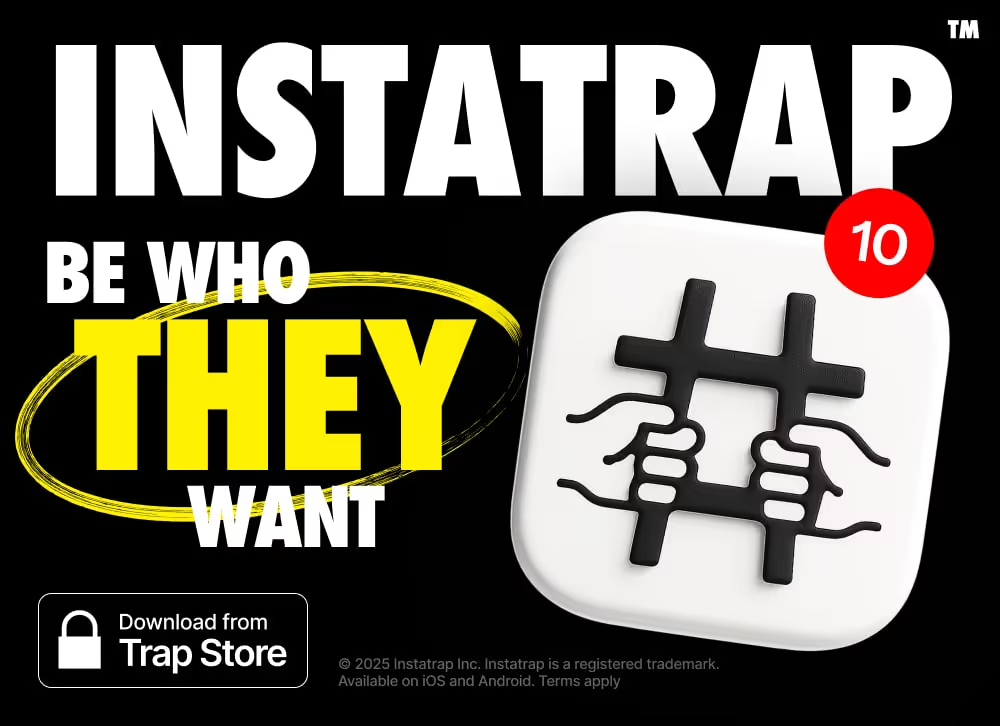
The Unripest Avocado: Nicholas Perry and the Dangers of Audience Capture

I write for creators, but I am no creator — not in any conventional sense, anyway.
I create… uh… with words?
I am a writer.
Previously, I was the head of one of those teams for a website that pulls in over 30 million readers every month, and now I lead a wildly talented team of 12 creators, writers, editors, and others here at Manychat. I have a few awards, including winning the New Yorker Caption Contest. (My editor here is tired of reading, but bona fides are important, right, Sarah? Editor’s note: Leave the humble bragging to the LinkedIn bros, please.)
What I’m saying here, besides the shameless self-promotion (I do freelance work, call me), is that I can tell you that I do know we share one thing in common: I deeply understand the intoxicating thrill of being validated, particularly by a large audience.
It’s a feeling, for sure, and that, increasingly, can shape your whole identity.

Audience Capture: What It Looks Like
Let’s not start with the squishy feeling muck; let’s start with what this looks like.
We've all seen this phenomenon in action: a favorite YouTuber shifts their content, chasing views while dropping all the terrible baggage of authenticity, integrity, or self-worth.
An influencer’s once-heartfelt posts transform magically overnight into predictable performances to appease the loudest voices in their comments section. You watch for weeks before unfollowing. It’s almost like they evolve into a caricature of themselves; some ugly mishmash of who they once were into who everyone else decided they should be.
Maybe you've even felt yourself slipping into it — changing your words or posts to align with what you know your audience needs. You’re not alone. There’s even a fancy term for this phenomenon: audience capture.
{{dark-side}}
Audience capture occurs when creators, intentionally or not, start shaping their content to meet audience expectations — personas included — often at the expense of everything else.
It's a total feedback loop — one driven by likes, comments, views, shares, and so on — turbocharged by algorithms. The more you conform, the richer the rewards get — greater visibility, better engagement, and (potentially) more revenue.

But then, what's the cost of this, anyway?
Often, the cost is as small as somebody you once thought was cool thinks you’re a sellout now, and as big as the death of one’s sense of self.
Consider the curious case of Nikocado Avocado.
(Not a sentence I ever expected to write, but here we are.)
Initially, this guy was a vegan YouTuber focused exclusively on healthy living. However, after discovering viewers flocked to his mukbang content — videos featuring enormous, almost perverse(?) amounts of food consumption — he pivoted completely. The result? Millions of followers, sure, but also severe health consequences and a transformed personality scarcely recognizable from his original identity.
For his part, Nicholas Perry, real name, has come around and openly acknowledged the phenomenon of audience capture in his own career. In a pretty revealing video titled “Two Steps Ahead,” he described this extreme persona as a deliberate creation, stating, “This manic, self-absorbed, crazy, unhinged, bizarre man that’s trapped in his apartment, suffocating his lungs with food and junk.”
Sounds unhealthy on a few levels.
Thankfully, Perry’s story came around. Perry explained that he had been posting pre-recorded videos for years to maintain the illusion of his character while secretly undergoing a significant personal transformation, including a 250-pound weight loss. He referred to this period as “the greatest social experiment of my entire life,” highlighting how he manipulated audience expectations and engagement for… uh… science?
Audience capture isn't confined to lifestyle-influencers-slash-supposed-social-scientists alone.
Universally loved figures from Elon Musk to Alex Jones are also often highlighted as case studies in public personas who dramatically shift their image under the relentless pressure of audience demands. Just think of anybody who has done Musk’s sort of 180, from well-respected genius to… whatever he is now. That’s audience capture.
Bad right?
So, what makes audience capture so pervasive?
The answer lies in an algo-friendly cocktail of psychological, economic, and technological factors, all served lukewarm by Mother Nature herself.
Easily enough, first: we’re social creatures. Duh.
We humans crave validation from other humans, and social media delivers instant, quantifiable validation through likes, comments, and shares.
Economically, a creator's income often correlates closely with their follower count and engagement metrics, creating immense pressure to keep those audiences perpetually satisfied.
Algorithms exacerbate the issue, rewarding content that generates reactions, often controversy or extremism, over subtle or deeply meaningful content. (For instance, my poem, “Red Brethren,” only got 4 likes on Instagram.) We know why a creator takes the same style shot, sitting in the same pose, every day: It worked for them. The algo liked it. Nobody’s at fault here. Carry on with your life, Nick.
Only, wait. 😬
I’m afraid this still impacts everyone.
This bullshit foments societal polarization, deepens our echo chambers, and lowers the overall quality of the content we consume.
It rewards spectacle over substance, compliance over creativity.
Yet, maybe there’s hope: audience capture can be resisted.

Here’s how I’ve seen it work for my most stalwart creators (particularly our Social Media maven, Mel, who does what she wants and does it well)
- Cultivate your own awareness: Recognize the early signs and pressures of audience capture. Awareness alone is indeed a formidable defense. You can’t stop yourself without noticing you need to stop.
- Write down your vision: As old Abe Lincoln once said, "No man has a good enough memory to be a successful liar." Figure out your core values and stay true to them. Authenticity isn’t just ethical — it’s naturally sustainable.
- Establish your own boundaries (or lack thereof): Deliberately create content that challenges or surprises your audience occasionally. Push the limits. Get them used to the fact that you’re a complex person.
- Cut down on the analytics obsession: Treat those metrics as inputs, not commandments.
Audience capture is a real, widespread, and subtle phenomenon.
However, by understanding it and by looking out for it, we, as creators, marketers, and consumers, can advocate for and reward content that remains genuine, thoughtful, and true to the creator’s voice.
All I’m saying is that it’s time we upped the discourse around here.
Authenticity over algorithmic popularity, any day, every day.


Introducing 'InstaTrap': The revolutionary app that tells YOU exactly who YOU should be today!

Tired of being original?
Sick of all of that personal authenticity getting in the way of viral fame? Worry no more! InstaTrap analyzes your audience's most ridiculous, unrealistic whims in real-time, instantly changing your entire personality to fit trending hashtags, controversial takes, or whatever random food item is currently dominating mukbang videos!

Features Include:
- Auto-Pander™: Immediately adopt popular opinions you’ve never held!
- Persona Shift Plus®: Fully automated identity overhaul at the first sign of follower dissatisfaction.
- EchoChamber Creator: Why challenge your audience when you can comfortably reinforce all their biases?
With InstaTrap, your true self is just one viral post away from disappearing forever!
Act now and say goodbye to your soul!
(Results may vary. Side effects may include extreme existential dread, loss of genuine friends, and a deep, nagging emptiness in your core. Terms and conditions apply.)
© 2026 Manychat, Inc.

